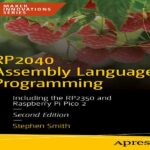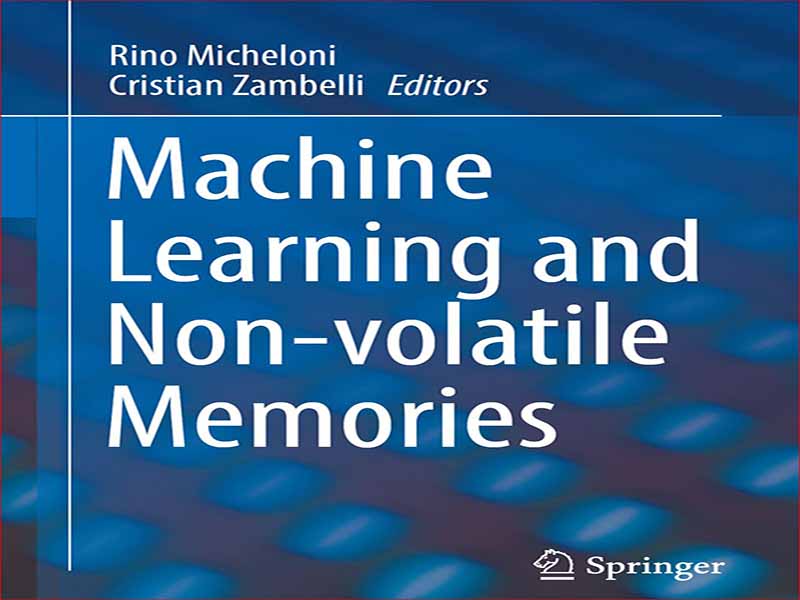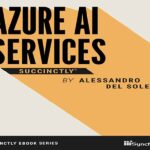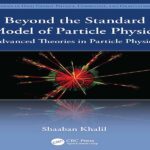- عنوان کتاب: Machine Learning and Non-Volatile Memories
- نویسنده: Rino Micheloni, Cristian Zambelli
- حوزه: یادگیری ماشین
- سال انتشار: 2022
- تعداد صفحه: 178
- زبان اصلی: انگلیسی
- نوع فایل: pdf
- حجم فایل: 6.47 مگابایت
شاید مهمترین انقلاب در تاریخ بشر، معرفی هوش مصنوعی در مقیاس بزرگ باشد. این انقلاب تأثیری باورنکردنی دارد، فراتر از هر تصوری. هوش مصنوعی نحوه طراحی، تصور، ساخت و ارائه محصولات به بازار را تغییر خواهد داد. هوش مصنوعی و کاربردهای آن می توانند زندگی ما را از جهات مختلفی تغییر دهند. هوش مصنوعی چیست و چرا اینقدر انقلابی است؟ بیایید با گفتن اینکه انواع مختلفی از هوش مصنوعی وجود دارد شروع کنیم. هوش مصنوعی ضعیف، هوش مصنوعی عمومی و هوش مصنوعی فوق العاده به نام «فوق هوش». همه این انواع هوش مصنوعی در استفاده از ماشینها برای فکر کردن و عمل کردن مانند انسانها با شناسایی مدلها و یافتن شرح مشکلی که باید حل شود با تقلید از فرآیندهای شناختی مشابه آنچه توسط انسانها در انجام وظایف مشابه استفاده میشود، مشترک هستند. در اوایل دهه 1600، توماس هابز، فیلسوف تجربهگرای انگلیسی، گفت: «استدلال چیزی جز محاسبه نیست» و هوش مصنوعی نشان داد که حق با او بود. حتی اگر مفهوم استفاده از ماشین برای تقلید از توانایی های مغز انسان بسیار قدیمی باشد، ما باید تا سال 1956 صبر می کردیم تا به درستی از “هوش مصنوعی” صحبت کنیم. این اصطلاح اولین بار توسط ریاضیدان آمریکایی جان مک کارتی، در طی سمیناری که در کالج دارتموث، نیوهمپشایر برگزار شد، ابداع و استفاده شد. بنیانگذاران این رشته جدید، جان مک کارتی، مارویر مینسکی، آلن نیول، هربرت سایمون و کلود شانون (یکی از پدران سایبرنتیک) معتقد بودند که می توان از ماشین هایی برای تشخیص صدا، درک زبان طبیعی، شناسایی اشیاء استفاده کرد. استدلال قیاسی، کشف قضایای جدید ریاضی، و بسیاری از فعالیتهای دیگر، که قبلاً فقط در اختیار ذهن انسان بود. انقلاب شروع شد!
Perhaps the most important revolution in the human history is the introduction of large-scale artificial intelligence. This revolution is having an incredible impact, beyond any imagination. Artificial intelligence will change howwe design, conceive, make, and bring products to the market. Artificial intelligence and its applications will be able to change our life in many ways. What is artificial intelligence, and why is it so revolutionary? Let’s start by saying that there are different types of artificial intelligence. The weak AI, the general AI, and the super AI called “superintelligence”. All these types of artificial intelligence have in common the use of machines to think and act like human beings by identifying models and finding the description of the problem to be solved emulating cognitive processes similar to those used by humans in carrying out the same tasks. As early as the 1600s, the English empiricist philosopher Thomas Hobbes said: “Reasoning is nothing but calculating” and Artificial Intelligence demonstrated that he was right. Even if the concept to use machine to emulate human brain capabilities is very old, we had to wait until 1956 before properly speaking of “Artificial Intelligence”. The term was first coined and used by the American mathematician John McCarthy, during a seminar held in Dartmouth College, New Hampshire. The founders of this newdiscipline, John McCarty, Marvir Minsky,AllanNewell, Herbert Simon, and Claude Shannon (one of the fathers of cybernetics), believed that it was possible to use machines for voice recognition, understanding of natural language, identification of objects, deductive reasoning, discovering new mathematical theorems, and many other activities, previously a prerogative of the human mind only. The revolution started!
این کتاب را میتوانید از لینک زیر بصورت رایگان دانلود کنید:



































نظرات کاربران